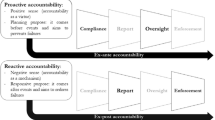Abstract
This paper addresses the question of delegation of morality to a machine, through a consideration of whether or not non-humans can be considered to be moral. The aspect of morality under consideration here is protection of privacy. The topic is introduced through two cases where there was a failure in sharing and retaining personal data protected by UK data protection law, with tragic consequences. In some sense this can be regarded as a failure in the process of delegating morality to a computer database. In the UK, the issues that these cases raise have resulted in legislation designed to protect children which allows for the creation of a huge database for children. Paradoxically, we have the situation where we failed to use digital data in enforcing the law to protect children, yet we may now rely heavily on digital technologies to care for children. I draw on the work of Floridi, Sanders, Collins, Kusch, Latour and Akrich, a spectrum of work stretching from philosophy to sociology of technology and the “seamless web” or “actor–network” approach to studies of technology. Intentionality is considered, but not deemed necessary for meaningful moral behaviour. Floridi’s and Sanders’ concept of “distributed morality” accords with the network of agency characterized by actor–network approaches. The paper concludes that enfranchizing non-humans, in the shape of computer databases of personal data, as moral agents is not necessarily problematic but a balance of delegation of morality must be made between human and non-human actors.
Similar content being viewed by others
References
A. Adam (2005) Gender, Ethics and Information Technology Palgrave Macmillan Houndmills, Basingstoke
M. Akrich (1997) The De-Scription of Technical Objects W.E. Bijker J. Law (Eds) Shaping Technology/Building Society: Studies in Sociotechnical Change MIT Press Cambridge, MA and London 205–224
A.L. Allen (1998) Privacy A.M. Jaggar I.M. Young (Eds) A Companion to Feminist Philosophy Blackwell Malden, MA and Oxford 456–465
H.M. Collins (1985) Changing Order: Replication and Induction in Scientific Practice Sage London, Beverly Hills and New Delhi
H.M. Collins (1990) Artificial Experts: Social Knowledge and␣Intelligent Machines MIT Press Cambridge, MA
H.M. Collins M. Kusch (1998) The Shape of Actions: What Machines and Humans Can Do MIT Press Cambridge, MA and London
H.M. Collins S. Yearley (1992) Epistemological Chicken A. Pickering (Eds) Science as Practice and Culture University of Chicago Press Chicago and London 301–326
D.C. Dennett (1994) The Myth of Original Intentionality E. Dietrich (Eds) Thinking Computers and Virtual Persons: Essays on the Intentionality of Machines Academic Press San Diego, CA and London 91–107
L. Floridi J.W. Sanders (2004) ArticleTitleOn the Morality of Artificial Agents Minds and Machines 14 IssueID3 349–379 Occurrence Handle10.1023/B:MIND.0000035461.63578.9d
J. Gips (1995) Towards the Ethical Robot K.M. Ford C. Glymour P.J. Hayes (Eds) Android Epistemology MIT Press Cambridge, MA and London 243–252
G. Kewney. No, Mrs Duval, You CANNOT Track a Mobile Human by Wireless Like a Car! http://www.newswireless.net/index.cfm/article/548, available online, accessed 23rd March, 2005, 2002
B. Latour (1997) Where are the Missing Masses? The Sociology of a Few Mundane Artifacts W.E. Bijker J. Law (Eds) Shaping Technology/Building Society: Studies in Sociotechnical Change MIT Press Cambridge, MA and London 225–258
S. Room. Meeting the Challenges of the Victoria Climbie & Soham Cases, http://www.dpalaw.info available online, accessed 23rd March, 2005, 2004
J.R. Searle (1987) Minds, Brains and Programs R. Born (Eds) Artificial Intelligence: The Case Against Croom Helm London and Sydney 18–40
L. Winner (1993) ArticleTitleUpon Opening the Black Box and Finding it Empty: Social Constructivism and the Philosophy of Technology Science, Technology & Human Values 18 IssueID3 362–378
Author information
Authors and Affiliations
Corresponding author
Rights and permissions
About this article
Cite this article
Adam, A. Delegating and Distributing Morality: Can We Inscribe Privacy Protection in a Machine?. Ethics Inf Technol 7, 233–242 (2005). https://doi.org/10.1007/s10676-006-0013-3
Issue Date:
DOI: https://doi.org/10.1007/s10676-006-0013-3



